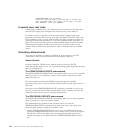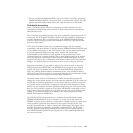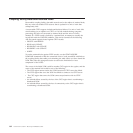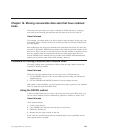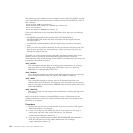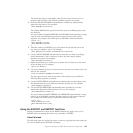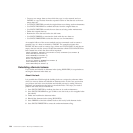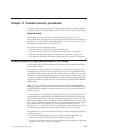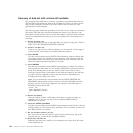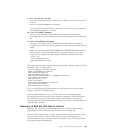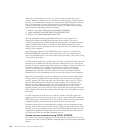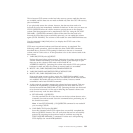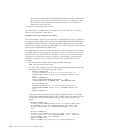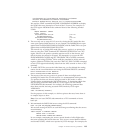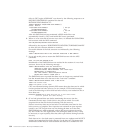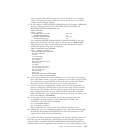Recovery of data set with volume still available
The procedure described here is necessary to preserve any retained locks that are
held by SMSVSAM against the data in the old data set. Unless you follow all the
steps of this procedure, the locks will not be valid for the new data set, with
potential loss of data integrity.
The following steps outline the procedure to forward recover a data set accessed in
RLS mode. Note that the procedure described here refers to two data sets—the
failed data set, and the new one into which the backup is restored. When building
your JCL to implement this process, be sure you reference the correct data set at
each step.
1. Quiesce the data set
To prevent further accesses to the failed data set, quiesce it using the CEMT, or
EXEC CICS, SET DSNAME QUIESCED command.
2. Create a new data set
Create a new data set into which the backup is to be restored. At this stage, it
cannot have the same name as the failed production data set.
3. Issue FRSETRR
Use this access method services SHCDS subcommand to mark the failed data
set as being subject to a forward recovery operation. This makes the data set
unavailable to tasks other than those performing recovery functions, and also
allows the following unbind operation to succeed.
4. Issue FRUNBIND
Use this access method services SHCDS subcommand to unbind any retained
locks against the failed data set. This enables SMSVSAM to preserve the locks
ready for re-binding later to the new data set used for the restore. This is
necessary because there is information in the locks that relates to the old data
set, and it must be updated to refer to the new data set. Unbinding and
re-binding the locks takes care of this.
Note: You can include the access method services SHCDS FRSETRR and
FRUNBIND subcommands of steps 3 and 4 in the same IDCAMS execution,
but they must be in the correct sequence. For example, the SYSIN input to
IDCAMS would look like this:
//SYSIN DD *
SHCDS FRSETRR(old_dsname)
SHCDS FRUNBIND(old_dsname)
/*
5. Restore the backup
After the unbind, restore a full backup of the data set to the new data set
created in step 2. You can use the recovery function (HRECOVER) of
DFSMShsm
™
to do this.
6. Issue the FRSETRR subcommand
Use this access method services SHCDS subcommand to mark the new data set
as being subject to a forward recovery operation. This is necessary to allow the
later bind operation to succeed.
7. Run the forward recovery utility
Run your forward recovery utility to apply the forward recovery log to the
restored data set, to redo all the completed updates.
8. Delete the old data set
Delete the old data set to enable you to rename the new data set to the name
of the failed data set.
188 CICS TS for z/OS 4.1: Recovery and Restart Guide



